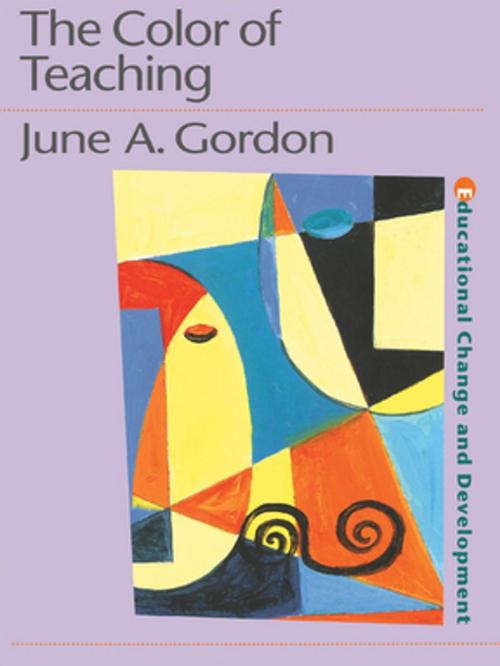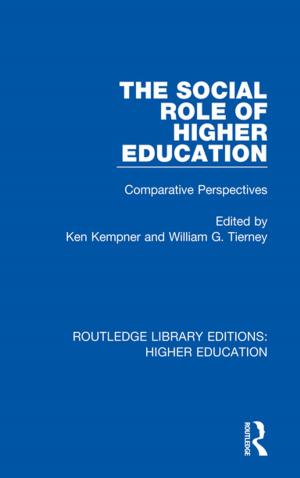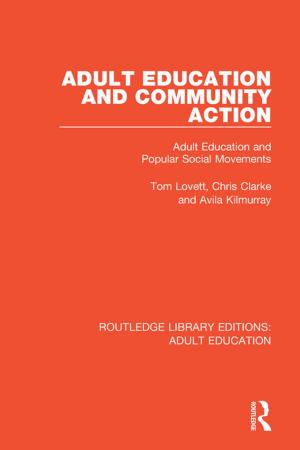The Color of Teaching
Nonfiction, Reference & Language, Education & Teaching, Educational Theory, Educational Reform| Author: | June Gordon | ISBN: | 9781135699109 |
| Publisher: | Taylor and Francis | Publication: | November 1, 2002 |
| Imprint: | Routledge | Language: | English |
| Author: | June Gordon |
| ISBN: | 9781135699109 |
| Publisher: | Taylor and Francis |
| Publication: | November 1, 2002 |
| Imprint: | Routledge |
| Language: | English |
One of the major concerns in education at present is how to recruit and attract more teachers from ethnic minorities. In an attempt to move beyond the superficial and simplistic responses as to why these students are not entering teaching this book presents in-depth interviews with over two hundred people from four ethnic groups: African Americans, Native Americans, Asian Americans and Latinos.
These interviewees, many of them teachers or education professionals, express their attitude towards teaching and their understanding of why others may not choose teaching as a career.
One of the most significant and surprising findings is that, regardless of academic or socio-economic standing, students from these ethnic groups tend not to be encouraged to enter the teaching profession by their own families communities and peers. The book concludes with a discussion of programmatic changes and calls for the reconceptualization of the role of teachers. Such changes can only arise out of a fundamental change in attitude of communities of color towards teaching which must be led by teachers themselves.
One of the major concerns in education at present is how to recruit and attract more teachers from ethnic minorities. In an attempt to move beyond the superficial and simplistic responses as to why these students are not entering teaching this book presents in-depth interviews with over two hundred people from four ethnic groups: African Americans, Native Americans, Asian Americans and Latinos.
These interviewees, many of them teachers or education professionals, express their attitude towards teaching and their understanding of why others may not choose teaching as a career.
One of the most significant and surprising findings is that, regardless of academic or socio-economic standing, students from these ethnic groups tend not to be encouraged to enter the teaching profession by their own families communities and peers. The book concludes with a discussion of programmatic changes and calls for the reconceptualization of the role of teachers. Such changes can only arise out of a fundamental change in attitude of communities of color towards teaching which must be led by teachers themselves.















